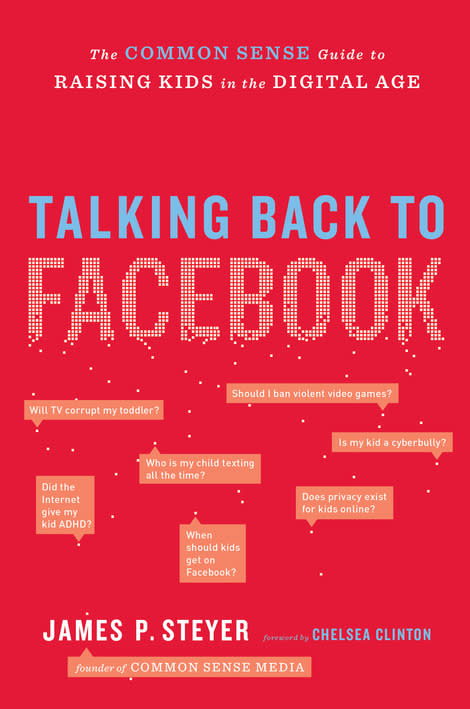Nothing to LOL About: New Disturbing Teen Girl Trend

Move over, Seventeen Magazine. New research shows that many teen girls Photoshop photos of themselves to look thinner for their Facebook profiles, their focus on weight and appearance verging on compulsion. In Talking Back to Facebook, author James P. Steyer explains how social media is taking an old, familiar problem-low self-esteem in teens-to obsessive new heights.
According to a study by Stanford's Cliff Nass, teen girls tend to present overly thin images of themselves on Facebook. In addition, the more concerned a girl is about her appearance, weight, and body image, the more she tends to check her Facebook profile and vice versa. The new research also shows that many teen girls Photoshop-digitally alter-their photos to appear thinner and carefully select photos for their Facebook profiles that make them look thinner, hoping to receive positive public feedback from their peers. At times, their focus on appearance and thinness verges on compulsion. With digital cameras on their mobile phones, many teen girls constantly monitor how photogenic they look, checking and rechecking their appearance in photos again and again.
Many teen girls also comment incessantly on each other's appearance in Facebook photos-far more than they would in the real world, since they know that these displays of "friendship" are very public. Typical comments include "OMG! You're so gorgeous," or "Stop Being So Cute!" or "You are too hot, Sexxy Thing!" Indeed, some girls interviewed for an undergraduate thesis by a Common Sense colleague admitted asking their friends to make positive comments about their appearance in Facebook photos, in hopes that others would make similarly positive remarks. Clearly, many of these girls use Facebook comments about their appearance as measuring sticks for friendship, self-image, and basic self-worth.
This cycle can have pernicious effects. By heightening the focus on their appearance, especially their weight, girls are constantly trying to appear thinner than they really are. This magnification effect of Facebook can, in some cases, be associated with eating disorders like anorexia or bulimia and other health-related issues. To date, the research on the relationship between social media and girls' appearance has tended to focus on objectification and self-harm. But there has also been growing criticism and analysis of pro-anorexia and pro-bulimia websites, which can teach visitors how to maintain or develop eating disorders.
As the father of two teenage girls who deal with appearance pressures on a regular basis, I believe this is an issue that should be addressed in homes, classrooms, and public forums across the country, as often as possible. The main thing we can do as parents and educators is to place these issues firmly out in the open. In doing so, we can begin the necessary dialogue to educate all of our kids, and ourselves, about how to deal with these pressures in the increasingly public world of social media.
A young Common Sense Media staffer, Kelly Schryver, who's in her early twenties, recently summed up the issue of how social networks affect girls' body image:
"Thank God we didn't have Facebook when we were in middle school," a former classmate of mine recently expressed to me over dinner. On the one hand, it is crucial that we recognize Facebook's incredible potential to fortify girls' friendship and boost their self-esteem. Girls love staying in touch with friends they cannot see on a regular basis. They love looking at photos of one another.... On the other hand, we must also recognize that today's girls-for the first time-are growing up with mirrors that talk back to them. Girls not only use Facebook to check up on how they look, they also use it to gauge how others see them. Looking forward, we need to identify and question socially sanctioned online practices among girls that encourage them to self-objectify and... to help tomorrow's young women resist the urge to conflate self-worth, friendship, and physical attractiveness.
Get relationship tips. Find help with your love life. Have a happy marriage. Sign up for our newsletter!
Related Links:
Buy Talking Back to Facebook: The Common Sense Guide to Raising Kids in the Digital Age
Scary Trend: Mommyrexia, the Fear of Pregnancy Weight Gain
Before You Post another Photo of Your Kid on Facebook, Consider This
Like Tips on Life and Love on Facebook
Follow Tips on Life and Love on Twitter


